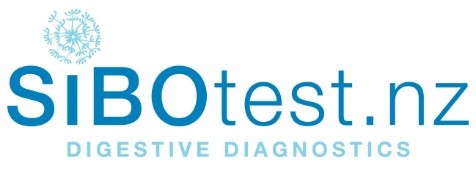What is the SIBO Breath test and how can it help improve your digestive health?
Normally, bacteria are found in the trillions in the large intestine, where they perform various functions for the human body. SIBO is defined as an increase in the number of bacteria, and/or changes in the types of bacteria present in the small intestine. In most patients, SIBO is not caused by a single type of bacteria, but an overgrowth of the bacteria that should normally be found in the colon.
Irritable Bowel Syndrome (IBS) is a widespread health complaint in the world and NZ has quite high numbers with this condition - 11-14% of the population globally and 17% in New Zealand. Interestingly Studies also show that over 50% of patients diagnosed with IBS have SIBO as well.
A simple breath test is available to show if SIBO may be contributing to your IBS or Digestive problems.
Common symptoms of SIBO
· Bloating/abdominal bloating associated discomfort after eating
· Gas and belching
· Food Intolerances
· Constipation (generally associated with methanogenic bacteria)
· Diarrhoea (generally associated with hydrogenic bacteria)
· Food sensitivities
· Fatigue or brain fog
· Fibromyalgia
· Weight loss/weight gain
SIBO Effects
SIBO has been shown to negatively affect both the structure and function of the small bowel. It may significantly interfere with digestion of food and absorption of nutrients, primarily by damaging the cells lining the small bowel (the mucosa).
Bacteria can produce bacterial endotoxins and can have wide ranging effects systemically. Additionally, this damage to the small bowel mucosa can lead to impaired gut permeability which is known to can lead to several potential complications including immune reactions that cause food allergies or sensitivities, generalized inflammation, and autoimmune diseases.
There are two main types of bacteria present in SIBO:
· Methanogenic bacteria – associated with constipation and poor bile flow/gallbladder function
· Hydrogenic bacteria – often associated with loose bowel motions.
How does the SIBO test work?
· Your Practitioner will provide you with a Test Kit
· A restricted diet is required for 24 hours in preparation – All information provided
· Following a collection of a baseline breath sample, either a lactulose (or glucose) test is consumed.
· The bacteria may ferment the Glucose or Lactulose and produce hydrogen and/or methane. These gases are absorbed into the bloodstream and exhaled through the breath.
· Breath samples are collected every 15-20 minutes (depending on the substrate used) for up to 3 hours and analysed for Hydrogen, Methane and CO2 production.
· This test can be done at home and samples sent to SIBOTest.nz for analysis.
· The results are given by your Practitioner during a consultation and treatment options and diet modifications are discussed and a treatment plan is formulated.
Normally, bacteria are found in the trillions in the large intestine, where they perform various functions for the human body. SIBO is defined as an increase in the number of bacteria, and/or changes in the types of bacteria present in the small intestine. In most patients, SIBO is not caused by a single type of bacteria, but an overgrowth of the bacteria that should normally be found in the colon.
Irritable Bowel Syndrome (IBS) is a widespread health complaint in the world and NZ has quite high numbers with this condition - 11-14% of the population globally and 17% in New Zealand. Interestingly Studies also show that over 50% of patients diagnosed with IBS have SIBO as well.
A simple breath test is available to show if SIBO may be contributing to your IBS or Digestive problems.
Common symptoms of SIBO
· Bloating/abdominal bloating associated discomfort after eating
· Gas and belching
· Food Intolerances
· Constipation (generally associated with methanogenic bacteria)
· Diarrhoea (generally associated with hydrogenic bacteria)
· Food sensitivities
· Fatigue or brain fog
· Fibromyalgia
· Weight loss/weight gain
SIBO Effects
SIBO has been shown to negatively affect both the structure and function of the small bowel. It may significantly interfere with digestion of food and absorption of nutrients, primarily by damaging the cells lining the small bowel (the mucosa).
Bacteria can produce bacterial endotoxins and can have wide ranging effects systemically. Additionally, this damage to the small bowel mucosa can lead to impaired gut permeability which is known to can lead to several potential complications including immune reactions that cause food allergies or sensitivities, generalized inflammation, and autoimmune diseases.
There are two main types of bacteria present in SIBO:
· Methanogenic bacteria – associated with constipation and poor bile flow/gallbladder function
· Hydrogenic bacteria – often associated with loose bowel motions.
How does the SIBO test work?
· Your Practitioner will provide you with a Test Kit
· A restricted diet is required for 24 hours in preparation – All information provided
· Following a collection of a baseline breath sample, either a lactulose (or glucose) test is consumed.
· The bacteria may ferment the Glucose or Lactulose and produce hydrogen and/or methane. These gases are absorbed into the bloodstream and exhaled through the breath.
· Breath samples are collected every 15-20 minutes (depending on the substrate used) for up to 3 hours and analysed for Hydrogen, Methane and CO2 production.
· This test can be done at home and samples sent to SIBOTest.nz for analysis.
· The results are given by your Practitioner during a consultation and treatment options and diet modifications are discussed and a treatment plan is formulated.


